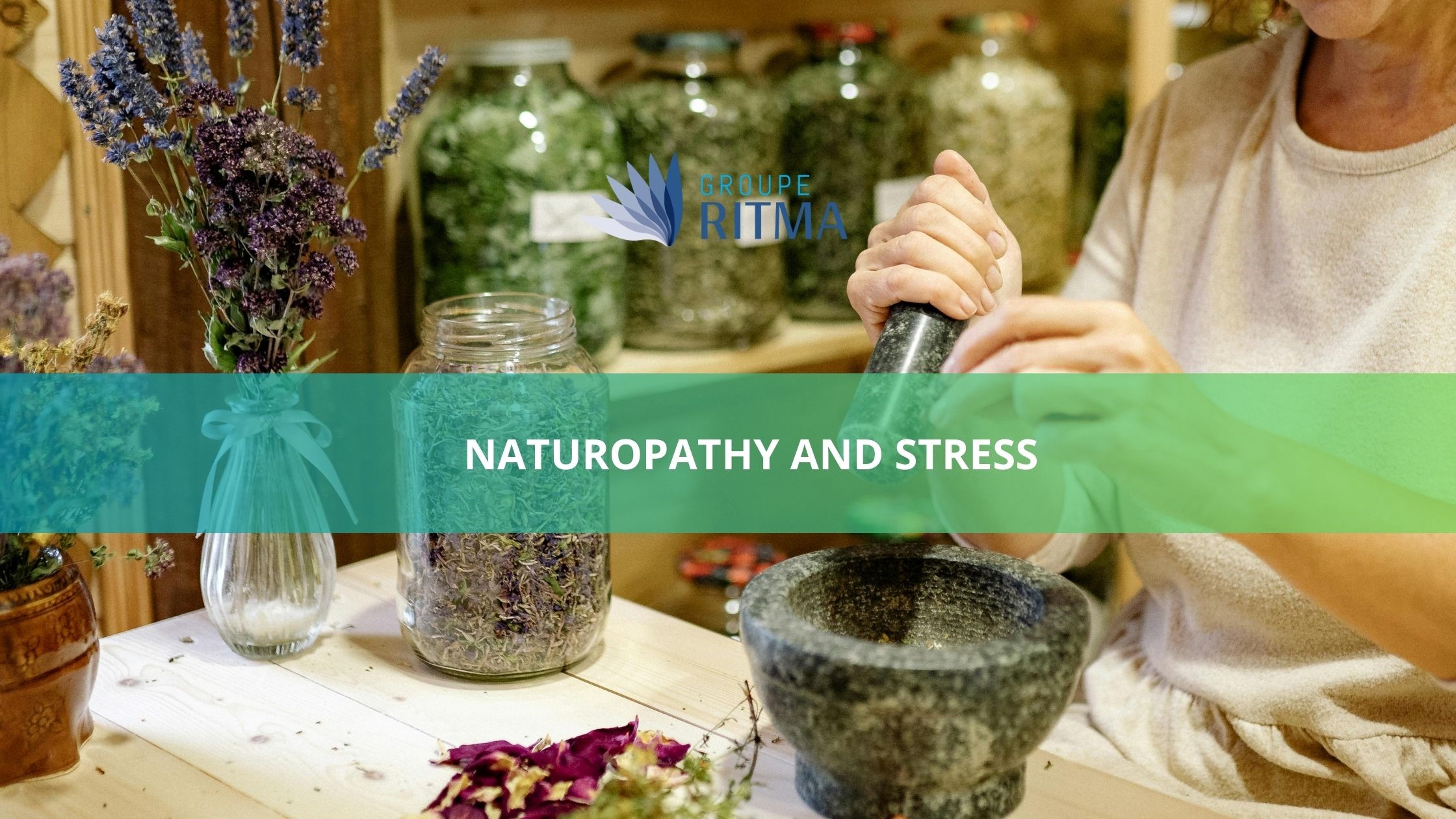
Chronicles
17 January 2025
Naturopathy and Stress: When One Tackles the Other

Stress is one of the most frequent concerns brought up in naturopathy consultations. This natural approach to health provides powerful tools to manage stress and helps individuals adopt a broader perspective on life’s challenges. But it’s not just about inhaling lavender all day—naturopathy takes a deeper dive, offering personalized support to achieve meaningful, lasting results.
Understanding Stress Through a Naturopathic Lens
Stress is a physiological response that kicks in when the body perceives a threat to life or safety. It’s part of our survival instinct—a reflex designed for temporary activation to deal with short-term challenges.
During stress, the body ramps up its metabolism, releasing neurotransmitters and hormones like adrenaline and cortisol. The heart beats faster, breathing intensifies, pupils dilate, and blood flows more vigorously to muscles, giving the body an energy surge to either fight or flee.
However, modern stressors are often chronic rather than fleeting. Prolonged stress keeps the body in overdrive, leading to exhaustion and even burnout. Naturopathy’s holistic approach seeks to identify and address the root causes of stress, providing a tailored pathway to relief.
Identifying the Source of Stress
The cornerstone of naturopathy is investigating the underlying cause of an issue. When it comes to stress, the first step is asking the right questions:
What’s causing my stress? Work? Family? Mental load? A specific event?
Am I naturally predisposed to stress? Do I often feel anxious, even about minor things?
What’s my emotional state? Am I feeling sad, angry, fatigued, or overwhelmed?
Answering these questions helps pinpoint where to act and how to manage stress effectively. A naturopath’s role is to guide this discovery process, encouraging self-reflection and empowering individuals to find actionable solutions.
Personal Growth: A Key to Stress Management
Once the source of stress is identified, the focus shifts to personal development. A naturopath will assist in exploring possible changes and strategies to address the issue.
For example, if work is the primary stressor, potential solutions might include:
Adjusting workload or responsibilities.
Improving communication with colleagues or superiors.
Exploring opportunities for a career change.
Rather than offering ready-made solutions, naturopathy empowers individuals to devise their own strategies, tailored to their unique circumstances and needs. Overcoming limiting beliefs—such as the idea that change is impossible—are often part of this transformative journey.
Tailored Tools for Stress Relief
Effective stress management requires an individualized approach. Some people find relief in calming practices like yoga, meditation, or breathing exercises. Others benefit more from high-intensity activities such as boxing, running, or strength training to release pent-up tension. Naturopathy respects these differences and works to align solutions with each person’s preferences and needs.
Nutrition: A Foundation for Emotional Resilience
A well-functioning nervous system relies on essential nutrients to produce neurotransmitters like serotonin (well-being), dopamine (motivation), and GABA (relaxation). Naturopathy places significant emphasis on nutrition, recommending a balanced diet rich in vitamins, minerals, and amino acids to support emotional balance and stress resilience.
Gut Health and Emotional Well-Being
The gut-brain connection is a vital aspect of stress management. Many neurotransmitters are synthesized in the digestive system, and maintaining a healthy microbiome can positively influence mental health. Naturopaths often provide guidance on diet and lifestyle to support digestive harmony.
Optimizing Lifestyle for Stress Reduction
Regular sleep patterns, balanced activity levels, and consistent meal times are all essential for reducing stress. Naturopathy promotes a holistic lifestyle, encouraging habits that enhance serenity and overall well-being.
Phytotherapy and Aromatherapy
Herbal remedies and essential oils can complement a stress management plan. A naturopath selects the most appropriate options based on an individual’s profile, ensuring safety and efficacy.
Flower Essences for Emotional Support
Bach flower remedies are another tool used in naturopathy to address emotional states. These natural extracts help balance the mood and foster positive reactions to life’s challenges.
A Comprehensive Approach to Stress
Managing stress requires a multifaceted strategy: addressing its root causes, fostering personal growth, adopting healthy lifestyle habits, and utilizing temporary aids like herbal remedies. By combining these elements, naturopathy provides a comprehensive framework to regain control over stress and achieve a more peaceful state of mind.